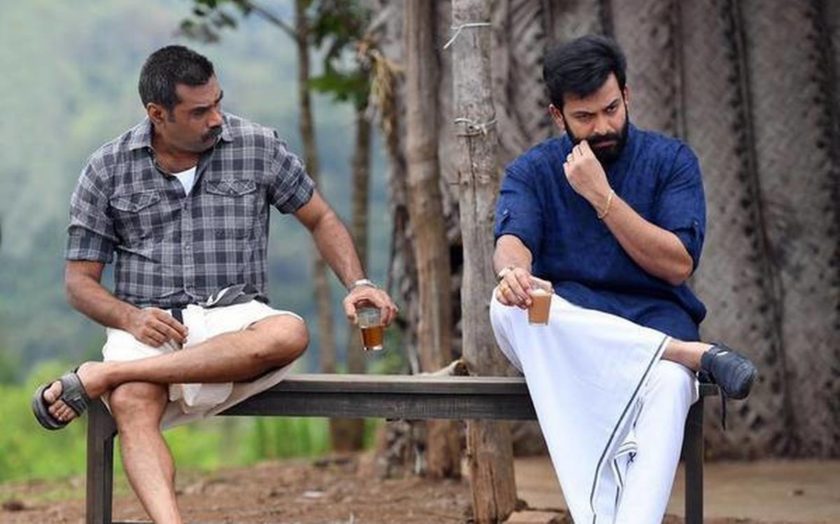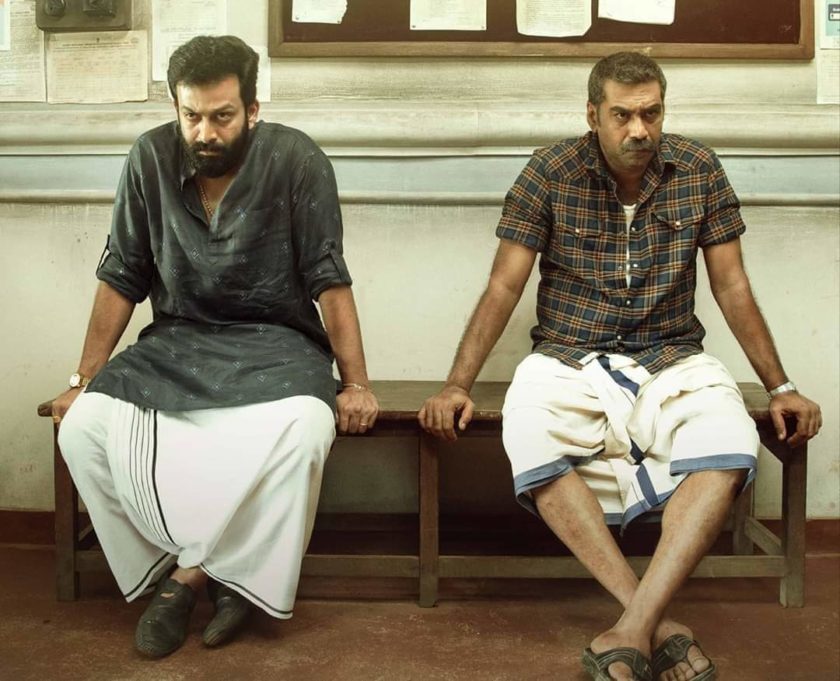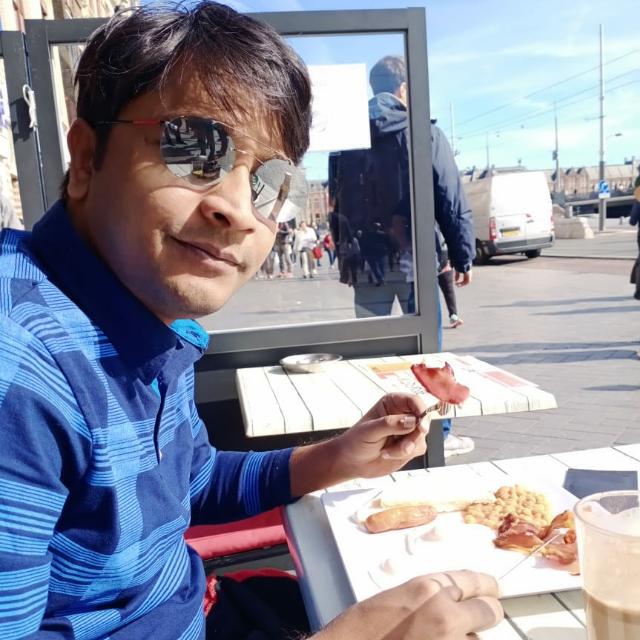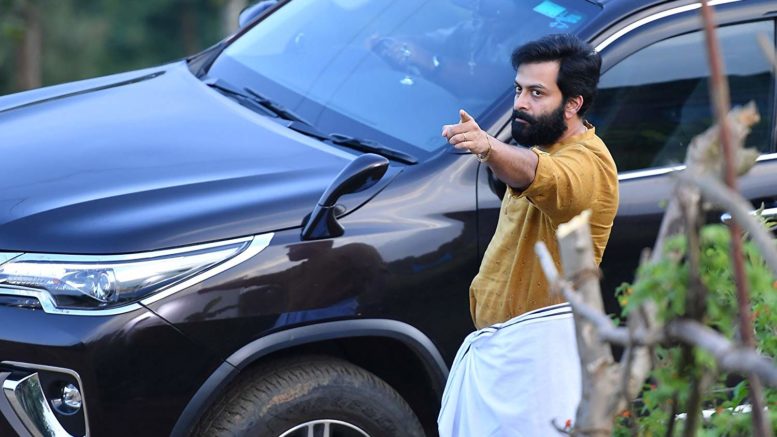Ayyappanum Koshiyum (AK) stands as the poignant farewell to the directorial legacy of Sachy, whose career was tragically cut short. This cinematic masterpiece draws its core conflict from another Sachy-penned film, Driving License. While AK retains the engaging plot, whistle-worthy commercial moments, and stellar performances by the leads, it delves even deeper, presenting a layered, darker, and action-packed narrative.
Ayyappanum Koshiyum: Unveiling Emotional Footnotes
Amid the commercial brilliance, AK unfolds subtle layers like footnotes, some leaping off the page and others demanding a more extended contemplation to grasp their significance. While much has been said about the film, this exploration focuses on those nuanced moments that evoke emotions, akin to using a marker to highlight the poignant footnotes of the cinematic narrative.
1. To err is human:
Upon realizing the severity of the Abkari case levied against him, Koshy resorts to the well-worn tools of the privileged: threats and bribery. In a setting like Delhi, this might have invoked the classic line, ‘Tu jaanta hai mera baap kaun hai’ (you know who my dad is). Faced with impending failure, he turns to the next weapon in his arsenal – the sob story. References to his bedridden mother and waiting children follow, all shared within earshot of policemen stationed outside. Moments before, they had secured the gates, prepared to prevent his departure from the station.
Ayyappanum Koshiyum Unveiled
As Koshy spins his tale, the officers’ expressions shift from disdain to empathy. In a matter of minutes, he transforms from a spoiled brat to a loving son and father. The walls dividing the privileged and the less fortunate momentarily crumble. When he requests a drink, the lady constable’s gaze gravitates toward the bottles seized from his vehicle. When Ayyapa eventually breaks the seal, inside the dry land police station, it isn’t out of fear of Koshy’s political connections but because he empathizes with Koshy’s humanity.
The writer skillfully uses this moment to delve into Ayyapa’s backstory, portraying his dreams of building a house and the upcoming receipt of the president’s medal. For a fleeting moment, the police station and the Abkari case fade into the background. This conversation could easily occur on a plane or in a railway compartment between co-passengers, highlighting the transient dissolution of barriers.

2. Frailty, thy name is male ego
Two strong female characters decimate Koshy’s ego. First, the lady constable brushes off his sympathy . Koshy knows he has wronged the girl and lets the insult pass off. Later when Koshy visits Ayyappan’s house to brag about his ‘victory’, the firebrand Kannama takes his swag and hangs it out to dry. Shocked at having received an earful, Koshy grudgingly accepts in front of Ayyappan that he has got a proper ‘bashing’. A man without the traditional concepts of manliness would have accepted his mistake after these incidents. It is only because of his ego that he keeps egging Ayyapa on.

3. The driver’s moral compass
Koshy’s driver epitomizes unwavering loyalty, extending to a fatherly affection for his employer. Despite being duty-bound to stand by Koshy, a human side to him emerges. He fundamentally disagrees with Koshy’s pursuit of revenge. When Kannama puts Koshy in his rightful place, the camera shifts to the driver, wearing a triumphant smile. It’s evident that Kannama has struck a chord, expressing sentiments the driver himself cannot articulate. This silent revelation adds depth to the unseen bonds within the narrative.
4. Marriage of compassion
Ayyappan’s marital union with Kannama isn’t a product of love but stems from compassion. Key scenes unveil the dynamics between Ayyappan and Kannama. When faced with the prospect of losing his job, Ayyappan anticipates Kannama’s nonchalant response, confident in her ability to care for their child. However, her only request is to ensure that Koshy isn’t spared. Ayyapa’s candid acknowledgment, “Neither of us have ever done what the other has asked for,” encapsulates the essence of their marriage. The ensuing silence and the expression on Ayyappan’s face signal a rare exception in their marital history. After years of matrimony, they have silently rewritten their wedding vow to one that echoes, “Kill the Bourgeoisie.”
5. ‘Act’ of bravery
After witnessing the out of uniform Ayyappan’s show of strength, Koshy and his driver have an uncomfortable conversation. The driver is afraid that Ayyappan does not just plan to hurt Koshy but kill him. You see the fear in Koshy. He has started to believe that Ayyappan could be capable of doing this and he tries to rationalize that nobody would kill for such a trivial matter. The words are spoken to the driver but are spoken for self-consolation. When faced with an unfavourable eventuality, the first reaction is always denial.
Koshy then brags that Ayyappan is not the only one who has the experience of killing, Koshy too has killed men in his military stint. We do not know if this is a fact and he does not sound convincing. It is more like a child concocting imaginary friends to keep the fear of ghosts and darkness away. Ghost and darkness- the unknown that trigger our primal fears. Ayyappan without his uniform and with his Mundoor Vampire past has now become an unknown entity for Koshy. His ego needs him to put up a brave front.

Biju Menon’s restrained act makes Ayyappan unpredictable and scary. Prithiviraj’s versatile performance takes the audience on a roller coaster of emotions vis-a-vis Koshy – hatred, pity, like, rooting, you feel all of these for the Havildar. What takes Ayyappunum Koshiyum beyond a well-made masala entertainer though are craftily sketched supporting characters and scenes like the ones mentioned above. By the climax fight if you end up rooting for both the characters, it is a testament to Sachy’s careful weaving of the story.

Captive of the 24 frames and admirer of the written word. If it is not on the silver screen or on the pages of a paperback, it might as well not exist.


Be the first to comment on "Ayyappanum Koshiyum – Crafty insertion of human emotions in a revenge saga"